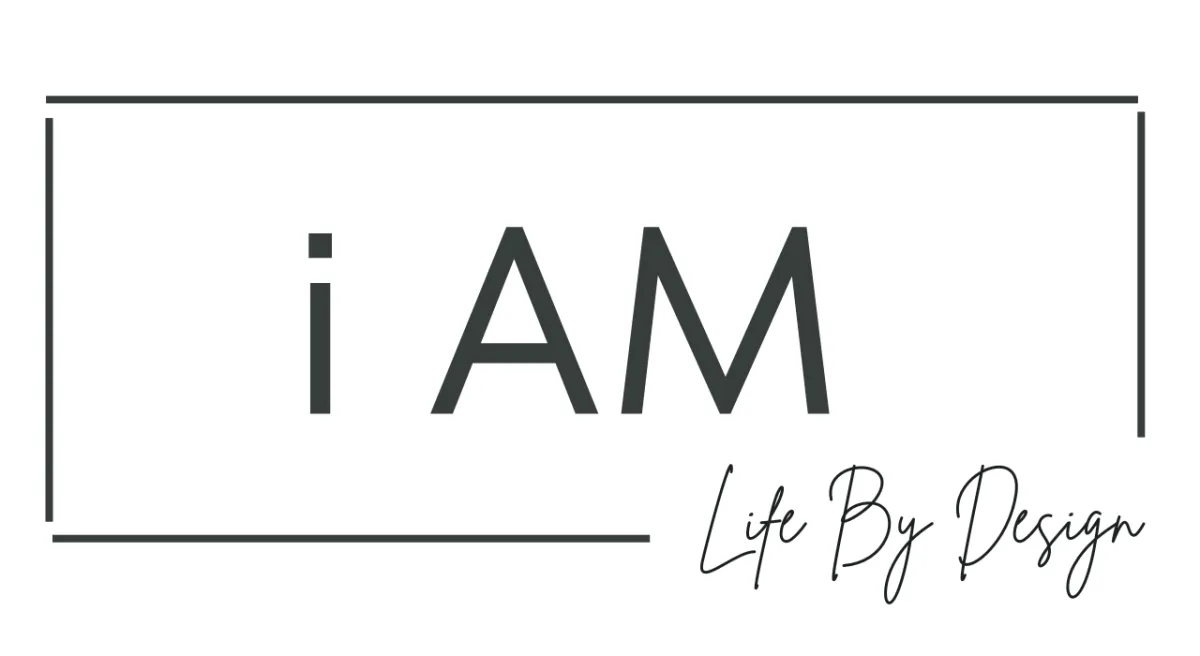

Mastering the Art of Mental Recovery: Expert Tips
Mastering the Art of Mental Recovery: Expert Tips
In this comprehensive guide, I will share expert insights and practical strategies to help you master the art of mental recovery. Whether you're struggling with mental health challenges, seeking to enhance your emotional resilience, or simply aspiring to achieve greater overall well-being, this article will equip you with the essential tools and techniques. These will help you navigate your journey towards lasting mental and emotional recovery.
Throughout this article, I will delve into the key principles of mastering the art of mental recovery. I will draw from the expertise of leading mental health professionals and incorporate proven strategies to support your mental health journey.
From understanding the significance of mental well-being to exploring mindfulness, cognitive-behavioral therapies, and holistic approaches, this comprehensive guide will provide you with the knowledge and practical tools. You will learn to cultivate a stronger, more resilient mindset. By the end of this article, you'll be equipped with the essential skills and resources to navigate the path towards mental and emotional recovery. This will ultimately enhance your overall quality of life.
Understanding the Importance of Mental Health
Mental well-being is a fundamental aspect of our overall quality of life. When our mental health flourishes, it profoundly impacts our daily lives. This includes our relationships, productivity, physical health, and sense of purpose.
Impact of Mental Well-being on Overall Life Quality
Good mental health brings numerous benefits. It enhances emotional regulation, problem-solving skills, and resilience. People with a healthy mindset enjoy more fulfilling relationships, higher job satisfaction, and a greater sense of life satisfaction.
Recognizing the Signs of Mental Distress
It's vital to recognize the signs of mental distress early. These signs can include persistent sadness, anxiety, or hopelessness. They also include difficulty concentrating, changes in sleep patterns, and a lack of motivation. Identifying these signs of mental distress is crucial for trauma healing and post-traumatic growth.
"Taking care of your mental health is just as important as taking care of your physical health. It's a journey, not a destination."
Understanding the importance of mental well-being in our lives empowers us. It allows us to prioritize our emotional and psychological needs. This leads to a more fulfilling and enriched quality of life.
Mastering the Art of Mental Recovery
The journey of mental recovery is both profound and transformative. It allows us to develop resilience, self-awareness, and the skills to overcome challenges. This process helps us reclaim our well-being.
At its core, mental recovery is about managing stress and adopting a growth mindset. We can use evidence-based techniques and tailor strategies to our needs. This helps us reframe our perspective, develop coping mechanisms, and connect more deeply with ourselves and the world.
Mindfulness and meditation are key to mastering mental recovery. They help us become more aware of our thoughts, emotions, and behaviors. This awareness empowers us to make choices that support our well-being.
Integrating cognitive-behavioral therapy (CBT) techniques is also crucial. CBT helps us challenge negative thoughts, develop healthier coping strategies, and build emotional resilience. It improves mood, reduces anxiety, and enhances our sense of control over our lives.
As we face life's complexities, mastering mental recovery becomes vital. A holistic approach that nourishes our mind, body, and spirit is essential. This approach helps us emerge from challenges with renewed purpose, empowerment, and the ability to thrive.
The path to mental recovery is unique for everyone. It demands patience, self-compassion, and a willingness to explore different techniques. By embracing this journey with an open mind and a commitment to growth, we can unlock the transformative power of mastering the art of mental recovery.
Mindfulness and Meditation Practices
In the realm of mental recovery, mindfulness practices and meditation have emerged as powerful tools. These science-backed techniques offer a wealth of benefits. They foster emotional regulation, stress reduction, and cultivate a deeper sense of well-being. I'll guide you through incorporating these transformative practices into your daily life.
Cultivating Present Moment Awareness
The foundation of mindfulness lies in being fully present, attuned to the here and now. By cultivating present moment awareness, you can break free from cycles of rumination and worry. These often contribute to mental distress. Through guided meditations and simple mindfulness exercises, you'll learn to ground yourself in the present.
Developing a greater capacity to respond to challenges with clarity and composure becomes possible.
Discover the art of mindful breathing, using the breath as an anchor to center your attention.
Engage in body scan meditations to become more aware of the sensations in your physical form.
Practice mindful walking or mindful eating to heighten your senses and appreciate the present moment.
As you weave these mindfulness practices into your daily routine, you'll experience the transformative power of being fully present. It also cultivates a greater sense of inner peace and overall well-being.
"Mindfulness is the aware, balanced acceptance of the present experience. It isn't more complicated than that. It is opening oneself to the reality of the present moment." - Sylvia Boorstein
Cognitive Behavioral Therapy Techniques
Cognitive Behavioral Therapy (CBT) is a powerful, evidence-based approach to mental health and recovery. It focuses on identifying and challenging negative thought patterns. This enables individuals to manage their emotions more effectively and foster lasting personal growth.
At the core of CBT lies the principle that our thoughts, feelings, and behaviors are interconnected. By understanding this relationship, we can interrupt distorted thinking. We replace it with more constructive, realistic perspectives. This leads to positive changes in our emotional well-being and overall quality of life.
Identifying and Challenging Negative Thought Patterns
One of the key tenets of cognitive behavioral therapy is recognizing the impact of our thoughts on our feelings and actions. Through self-reflection and guided questioning, CBT practitioners help individuals identify negative or distorted thoughts. These thoughts may contribute to mental health challenges like anxiety, depression, or trauma-related issues.
Recognize common cognitive distortions, such as catastrophizing, overgeneralization, and all-or-nothing thinking.
Challenge these distortions by evaluating the evidence and exploring alternative, more balanced perspectives.
Practice reframing negative thoughts into more positive, constructive statements.
Developing Coping Strategies
In addition to addressing negative thought patterns, cognitive behavioral therapy emphasizes developing practical coping strategies. These strategies help manage difficult emotions and situations. They are particularly helpful for individuals navigating trauma healing or striving for post-traumatic growth.
Learn relaxation techniques, such as deep breathing, progressive muscle relaxation, or visualization exercises.
Engage in problem-solving activities to develop effective strategies for addressing challenges.
Explore behavioral modification techniques, like exposure therapy or behavioral activation, to gradually confront and overcome fears or avoidance behaviors.
By incorporating these cognitive behavioral therapy techniques into their daily lives, individuals can gain a greater sense of control over their mental health. They foster resilience and unlock the path to meaningful personal growth.
Technique
Description
Key Benefits
Cognitive Restructuring
Identifying and challenging negative thought patterns to replace them with more realistic and constructive perspectives.
Improved emotional regulation, reduced distress, and enhanced problem-solving abilities.
Exposure Therapy
Gradually confronting feared situations or stimuli to overcome anxiety and phobias.
Increased confidence, reduced avoidance behaviors, and alleviation of trauma-related symptoms.
Behavioral Activation
Engaging in enjoyable and meaningful activities to counteract the withdrawal and inactivity associated with depression.
Improved mood, increased sense of purpose, and enhanced overall well-being.
"Cognitive Behavioral Therapy has been incredibly effective in helping individuals overcome a wide range of mental health challenges, from anxiety and depression to trauma-related disorders. By empowering people to take an active role in their own recovery, CBT can unlock the path to lasting personal growth and resilience."
Building Emotional Resilience
Emotional resilience is crucial for facing life's hurdles with fortitude and flexibility. It involves adopting a growth mindset and embracing post-traumatic growth. This approach turns adversity into a chance for personal growth and well-being.
Developing a Growth Mindset
Adopting a growth mindset is a powerful strategy for building emotional resilience. It changes how we see challenges, viewing them as chances to learn and improve, not threats to be shunned. With a curious and open mindset, we can tackle obstacles, grow from them, and develop resilience.
Embracing Post-Traumatic Growth
Post-traumatic growth is the positive change that can come from overcoming significant life challenges. It allows us to emerge with enhanced qualities, stronger bonds, a deeper appreciation for life, and spiritual growth. By embracing this growth, we can find meaning in our struggles.
Mastering emotional resilience is a journey of self-discovery and transformation. By adopting a growth mindset and embracing post-traumatic growth, we face life's challenges with strength, adaptability, and a renewed purpose.
Holistic Well-being Approaches
This section explores the deep connection between our mental, physical, and spiritual health. It shows how holistic methods can transform our recovery journey. By focusing on the mind, body, and spirit, we pave the way for lasting mental and emotional strength.
Integrating Mind, Body, and Spirit
Holistic well-being recognizes the unity of our mental, physical, and spiritual health. True healing and growth require addressing all aspects of our being. This might include mindfulness, gentle exercises, spiritual practices, healthy eating, and self-care.
Mindfulness meditation to cultivate present-moment awareness and inner calm
Gentle movement practices, such as yoga or Tai Chi, to align the body and mind
Spiritual exploration through practices like journaling, prayer, or connection with nature
Nourishing the body with a balanced, nutrient-rich diet and adequate rest
Engaging in self-care rituals, such as aromatherapy or creative expression
Integrating these holistic elements into our lives can lead to profound well-being. It helps us face life's challenges with resilience, clarity, and peace.
Holistic Well-being Practices
Benefits
Mindfulness Meditation
Reduces stress, enhances emotional regulation, and promotes present-moment awareness
Gentle Movement Practices
Improves physical flexibility, strength, and coordination, while also calming the mind
Spiritual Exploration
Fosters a deeper sense of meaning, purpose, and connection with something greater than ourselves
Nourishing the Body
Supports physical health, energy levels, and overall well-being
Self-Care Rituals
Promotes relaxation, self-expression, and a sense of balance in life
By embracing holistic well-being, we unlock our mental recovery's full potential. This approach leads to a life filled with harmony, resilience, and joy.
Conclusion
Reflecting on our journey through mental recovery, we see its deep significance. Mastering mental recovery empowers us to face mental health challenges with resilience and clarity. It brings a renewed sense of well-being into our lives.
This guide highlighted the critical role of mental health in our overall quality of life. We discussed the signs of mental distress and the benefits of mindfulness, meditation, and cognitive-behavioral therapy. These practices help build emotional resilience and a growth mindset.
Moreover, we explored the holistic approach to well-being, focusing on the mind, body, and spirit. By adopting these strategies, you now have the tools to start your mental recovery journey. You are ready to face life's challenges with vigor and a strong commitment to your mental, emotional, and spiritual health.

